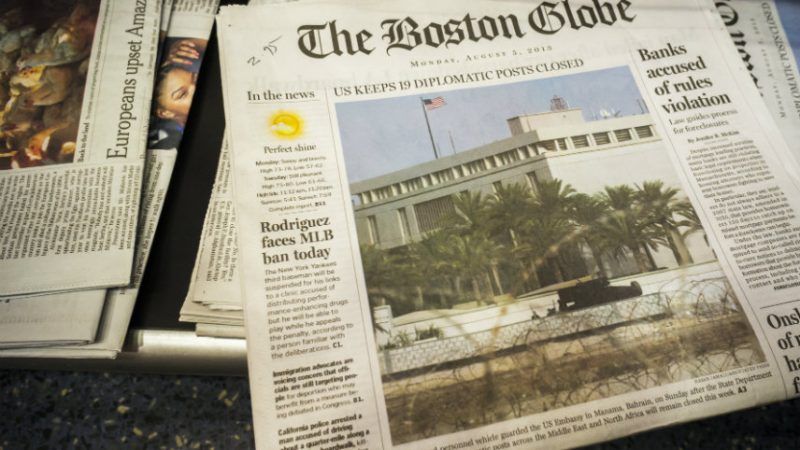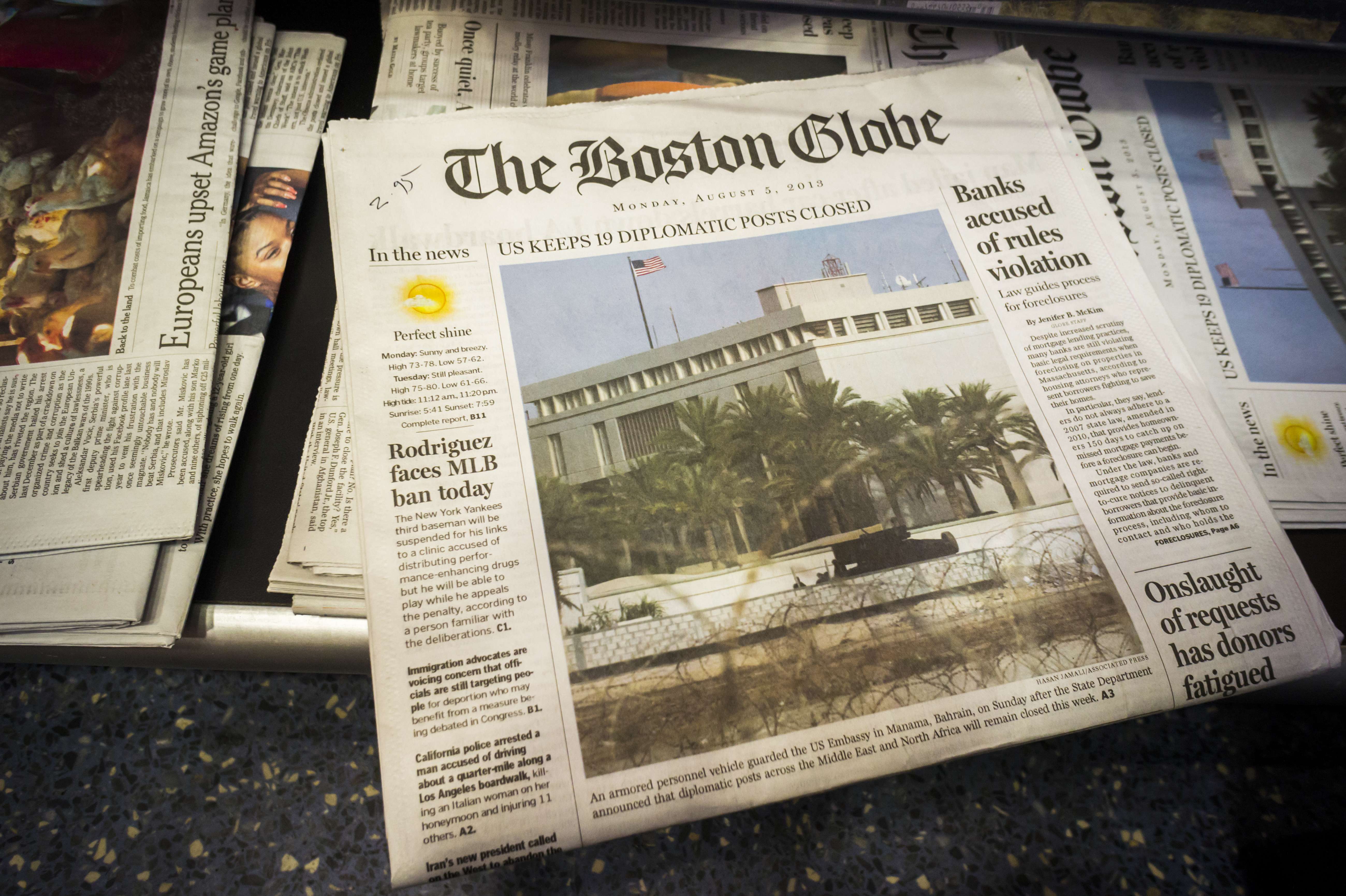The Price of Press Bias
When the press tilts in favor of higher taxes and more regulation, democracy is indeed distorted.


How seriously should one take President Trump's complaints about the press? About $37.06 a year seriously, to be precise.
Trump tweeted earlier this week: "With all of its phony unnamed sources & highly slanted & even fraudulent reporting, #Fake News is DISTORTING DEMOCRACY in our country!"
The most sinister interpretation of Trump's attacks on the press is that they are an effort to undermine public confidence in one of the few independent institutions that could challenge his grip on power. Trump's Republican Party controls Congress. Conservative-leaning justices hold four of nine Supreme Court seats. The Democratic Party is in disarray. That leaves the press—with the possible exception of the quasi-permanent federal bureaucracy—as the most formidable obstacle to whatever Trump wants to get done.
The most charitable interpretation of Trump's complaint is that, even if he may be exaggerating or painting with an excessively broad brush, he's nonetheless performing a valuable service by highlighting a genuine problem.
The truth, as usual, is somewhere in between. But Trump is right about the "highly slanted" part. I can say that as someone who has been documenting bias at The New York Times in items for my Smartertimes.com website now for 17 years.
How can I quantify the cost of press bias so precisely—$37.06 a year?
That's the amount my property taxes increased after the City of Boston voted to approve a tax surcharge. The slanted coverage came from the local National Public Radio affiliate, WGBH, which aired an indefensible piece that quoted two people in favor of the tax increase but not a single person who opposed it.
Now, one might argue that the press is just serving its audience of left-leaning Boston-area voters. The voters approved the tax increase in 2016 with about 74 percent in favor.
But it's a bit of a "which came first, the chicken or the egg" type of question. Are WGBH and the Boston Globe liberal because the citizens of Boston are? Or do the people of Boston lean left because the press is feeding them a diet of slanted information on which to make their judgments?
The truth, as usual, is somewhere in between.
The new property tax bill from the city, admirable in its transparency, has a line that itemizes the amount of the "community preservation act" surcharge. It's a line that didn't exist on last year's tax bill.
The line is labeled "community preservation act," but I prefer to think of it as a "media bias" tax. For $37.06, I could buy a pair of shoes for one of my children, make a donation to WGBH, or hire a local teenager to mow the lawn or shovel snow off my driveway. Instead, the money will go to local politicians for spending on their pet projects.
It's rare that the cost of press bias is as clear, and the consequence of it as direct, as with this property tax increase. But the price we pay is there, in every doctor's bill and every health insurance bill, every electric bill, every estimated tax payment, every payroll tax deduction, every sales tax imposed on every purchase at every store or restaurant. When the press tilts in favor of higher taxes and more regulation, against energy exploration, and for more government spending, democracy is indeed, as Trump accurately observes, distorted. The true cost, on annual basis, is probably well more than my $37.06 tax increase.
The First Amendment wisely prevents Congress from making any laws to address this problem. But President Trump is free to complain. And the rest of us are free to read, watch, and listen with skeptical eyes, ears, and minds, and to call out egregious cases of slant when we see them. If we don't, we'll all be stuck with the bill.

Show Comments (108)